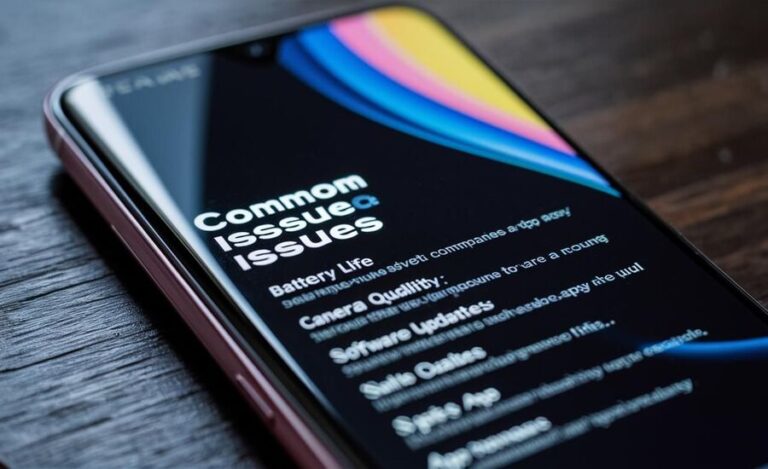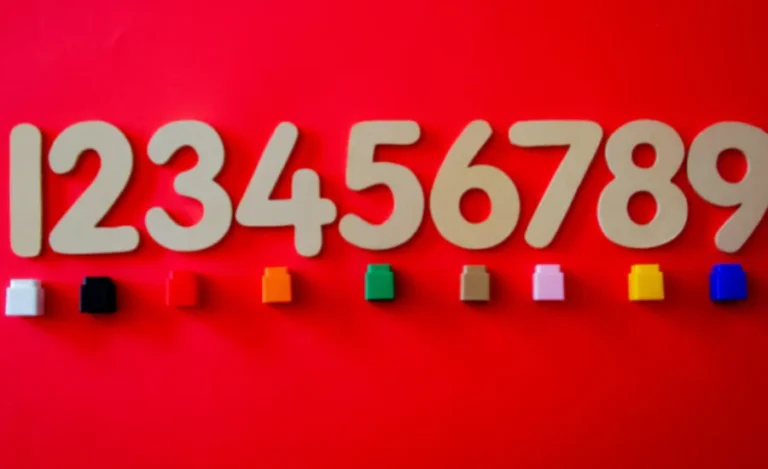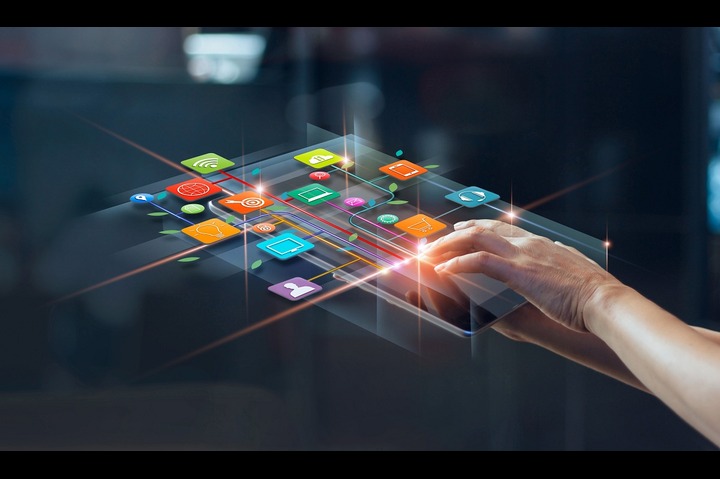Internet Chicks: Exploring the Modern Online Persona
The term Internet chicks has evolved into a powerful concept over the past few decades, representing women who have crafted their personas and careers through the virtual space. The rise of the digital age has offered unprecedented opportunities for self-expression, entrepreneurship, and connection, but it has also presented unique challenges. This article explores the multifaceted world of the modern online persona, focusing on how women in particular are navigating and shaping this space. From influencers and content creators to businesswomen and activists, the online persona for women is a complex and ever-evolving landscape. In this article, we will dive into the history, impact, and future of “Internet chicks” and the significance of their role in shaping the modern internet.
The Evolution of the Online Persona
The Early Days: Women in the Digital Frontier
In the early days of the internet, the idea of an online persona was almost alien. The internet was a place of anonymity, where users could be faceless, nameless, and unidentifiable. It was a space where people could explore different identities without revealing who they were in the physical world. However, as the internet evolved, so did the need for people, particularly women, to establish their real identities online.
Women began to carve out their space in various online forums and chatrooms, such as AOL, IRC, and Usenet groups. These spaces allowed women to engage in discussions ranging from niche hobbies to critical social issues. For many, the internet became a tool of empowerment, allowing women to express themselves freely in ways that might have been restricted by societal norms in the offline world.
Yet, this space was not without its challenges. The early internet was often seen as a male-dominated space, with women facing harassment or being treated as outsiders in many online communities. Despite this, many women persevered, using the internet to form new kinds of relationships, build professional networks, and advocate for issues they cared about.
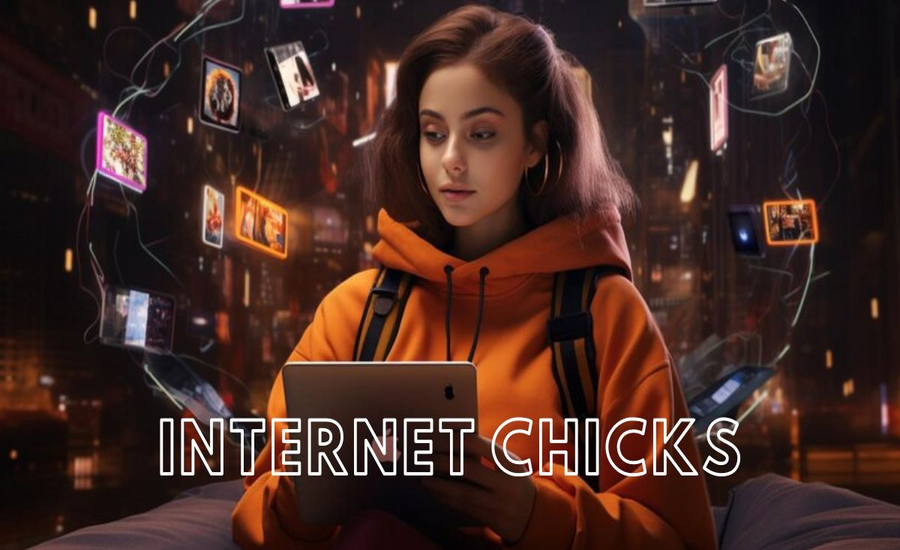
The Rise of Social Media: The Birth of the Influencer
The introduction of social media platforms such as MySpace, Facebook, and Twitter marked a significant shift in how people, especially women, created and maintained their online personas. No longer just participants in anonymous forums, women began using these platforms to craft highly curated representations of themselves. Social media became a stage for self-promotion, creativity, and influence, and out of this, the phenomenon of the “influencer” was born.
Women, in particular, found success in building personal brands through platforms like Instagram and YouTube. The visual nature of these platforms allowed for a more personalized and engaging way to connect with audiences. Women from all walks of life began to share their experiences, expertise, and creativity through fashion, beauty, fitness, and lifestyle content. Some became megastars with millions of followers, while others found niche communities where they could thrive.
Influencers like Chiara Ferragni and Zoella showed that it was possible to build multimillion-dollar brands through their online personas. These women were no longer just participants in the online world—they were shaping it.
The Power of the Internet Persona
Crafting an Online Identity
One of the most fascinating aspects of the internet persona is the ability to craft a self-representation that may or may not align with one’s real-world identity. For many women, the internet allows them to experiment with different aspects of their personality and interests. Whether it’s portraying an idealized version of themselves on Instagram, sharing deeply personal stories on a blog, or creating humorous content on TikTok, women use their online personas as both a creative outlet and a means of connecting with others.
In many ways, the online persona can be seen as a performance. Women are able to curate their lives in ways that emphasize their strengths, downplay their weaknesses, and appeal to their target audience. This curation can be empowering, allowing women to control the narrative of their own stories.
However, there is also a downside to this curation. The pressure to maintain a certain image can be overwhelming, particularly for those who have gained significant followings. The internet can be unforgiving, and the demands for content, engagement, and constant online presence can take a toll on mental health. Many women have spoken out about the challenges of keeping up with the expectations of their online personas and the impact it has on their personal lives.
Internet Chicks in Business and Entrepreneurship
The internet has opened up incredible opportunities for women to become entrepreneurs. From bloggers and influencers to e-commerce business owners, women have been at the forefront of using the internet to build businesses and generate income. Platforms like Etsy, Shopify, and Patreon have empowered women to monetize their passions, while YouTube, Twitch, and OnlyFans have allowed content creators to make a living through their online personas.
For many women, the internet offers a way to break free from traditional career paths and create their own opportunities. The flexibility and global reach of the internet mean that women can build businesses that cater to niche markets and connect with customers around the world. Whether it’s selling handmade crafts, offering online courses, or providing consulting services, women are using the internet to create businesses that align with their values and interests.
This entrepreneurial spirit is particularly significant for women who may have faced barriers in traditional industries. The internet has leveled the playing field in many ways, allowing women to bypass gatekeepers and reach their audiences directly. This has led to a proliferation of female-owned businesses and a redefinition of what it means to be an entrepreneur in the digital age.
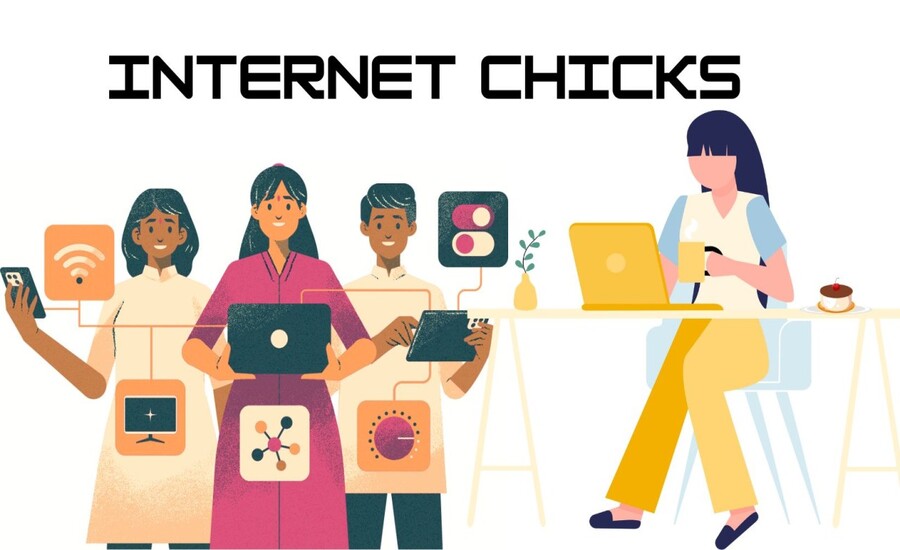
Bullet Points: Key Factors Shaping the Online Persona of Women
- Platform Choice: The platform a woman chooses can greatly influence her online persona. Instagram is often used for highly visual content, while Twitter is a space for thoughts and opinions. YouTube is popular for long-form content, while TikTok is great for short, creative videos.
- Audience Engagement: Engagement with followers plays a crucial role in shaping an online persona. Responding to comments, participating in discussions, and creating interactive content can help build a loyal community.
- Content Style: Whether it’s polished, professional content or raw, behind-the-scenes glimpses of life, the style of content can define how a woman is perceived online. This also includes the frequency and consistency of posting.
- Authenticity vs. Curation: Striking a balance between authenticity and curation is essential. While a highly curated feed can be aesthetically pleasing, audiences are increasingly drawn to content that feels genuine and relatable.
The Dark Side of Internet Fame
Online Harassment and Trolling
While the internet offers incredible opportunities for self-expression and connection, it also comes with significant risks, particularly for women. Online harassment, trolling, and cyberbullying are rampant issues that disproportionately affect women. Women with large followings often face targeted harassment, from body shaming to threats of violence. This harassment can have serious consequences, not only on mental health but also on physical safety.
Many women have shared their experiences of being doxxed—having their personal information shared online without their consent—or being stalked by online trolls. The anonymity of the internet often emboldens people to say things they would never say in person, and for women in particular, this can lead to a hostile online environment.
The rise of movements like #MeToo has highlighted the prevalence of online harassment and the need for greater protections for women online. However, the problem persists, and many women feel that social media platforms and online communities are not doing enough to address it. The need for better moderation, stronger harassment policies, and more robust support systems is critical for making the internet a safer space for women.
Mental Health Struggles
The pressure to maintain an online persona can also have serious effects on mental health. For many women, the constant demand for content and engagement can lead to burnout, anxiety, and depression. The comparison culture fostered by social media can exacerbate feelings of inadequacy and self-doubt, particularly when one’s online persona does not reflect their real-life struggles.
Studies have shown that women who spend a significant amount of time on social media are more likely to experience negative mental health outcomes, including body dissatisfaction, anxiety, and depression. The constant exposure to idealized images and lifestyles can create unrealistic expectations and contribute to a sense of never being “good enough.”
Many women have begun to speak out about the toll that maintaining an online persona takes on their mental health. Some have taken breaks from social media, while others have shifted their content to focus more on authenticity and vulnerability. There is a growing movement towards promoting mental health and self-care within the online space, encouraging women to prioritize their well-being over maintaining a perfect image.
Internet Chicks as Social Activists
The Rise of Digital Activism
In addition to building personal brands and businesses, many women are using their online personas as platforms for social change. The internet has become a powerful tool for activism, allowing women to raise awareness, mobilize communities, and advocate for causes they care about.
Women have been at the forefront of many digital movements, from #MeToo and #BlackLivesMatter to climate change advocacy and LGBTQ+ rights. The ability to reach large audiences and connect with like-minded individuals has made the internet a vital space for social activism. Women are using their online personas to challenge societal norms, push for policy changes, and create a more inclusive world.
One of the key advantages of digital activism is its accessibility. Women from all over the world can participate in online activism, regardless of their geographic location, economic status, or physical abilities. This has led to a more diverse and inclusive activist community, with women from different backgrounds and experiences contributing to the conversation.
Bullet Points: How Women are Leading Digital Activism
- Social Media Campaigns: Platforms like Instagram and Twitter have become powerful tools for raising awareness and organizing campaigns. Hashtags like #MeToo and #TimesUp have sparked global conversations about gender inequality and harassment.
- Crowdfunding for Causes: Women have used crowdfunding platforms like GoFundMe and Patreon to raise money for causes they care about, from supporting marginalized communities to funding legal battles for social justice.
- Educational Content: Many women are using their online personas to educate their followers about social issues. This includes creating content that explains complex topics like systemic racism, climate change, and gender equality in an accessible and engaging way.
The Future of the Online Persona
The Impact of Emerging Technologies
As technology continues to evolve, so too will the concept of the online persona. The rise of virtual reality (VR), augmented reality (AR), and artificial intelligence (AI) is already beginning to reshape the way people interact with the internet. For women, these emerging technologies offer new opportunities for self-expression and connection, but they also come with new challenges.
One potential future development is the creation of virtual avatars—digital representations of ourselves that exist in virtual spaces. These avatars could be used for everything from socializing in VR environments to attending virtual conferences and events. For women, this could offer new ways to express their identities and interact with others in the digital world.
However, the rise of AI also raises questions about the future of authenticity online. Deepfake technology, which allows for the creation of hyper-realistic videos of people saying or doing things they never actually did, has the potential to be used maliciously against women. This could further exacerbate issues of harassment and abuse online, making it even more important to develop strong ethical guidelines and protections as these technologies advance.
The Push for Greater Inclusivity and Representation
The future of the online persona will also be shaped by the ongoing push for greater inclusivity and representation. While women have made significant strides in the digital space, there is still a long way to go in terms of ensuring that all voices are heard and respected online. Women of color, LGBTQ+ women, and women with disabilities often face additional barriers and challenges in the online space, from underrepresentation to targeted harassment.
There is a growing recognition of the need for more diverse and inclusive online spaces, where all women can feel empowered to express themselves and share their stories. This includes not only creating platforms that are safe and welcoming for all women but also ensuring that algorithms and AI technologies are designed with inclusivity in mind. The future of the online persona will depend on creating a digital world that reflects the diversity and complexity of women’s experiences.
Conclusion: Embracing the Power and Responsibility of the Online Persona
The modern online persona is a powerful tool for self-expression, connection, and empowerment. For women, the internet has opened up new opportunities for entrepreneurship, activism, and creativity, allowing them to shape their identities and influence the world around them. However, this power comes with significant challenges, from the pressure to maintain a curated image to the risks of online harassment and mental health struggles.
As the internet continues to evolve, women will play a crucial role in shaping its future. By embracing both the opportunities and the responsibilities that come with an online persona, women can continue to push for greater inclusivity, representation, and empowerment in the digital space. The internet is a dynamic and ever-changing landscape, and the women who navigate it will continue to redefine what it means to be an “Internet chick” in the modern world.

